
Desiderio Alberto Arnaz y de Acha III, known as Desi Arnaz, was a Cuban-American actor, musician, producer, and bandleader. He played Ricky Ricardo on the American television sitcom I Love Lucy, in which he co-starred with his wife Lucille Ball. Arnaz and Ball are credited as the innovators of the syndicated rerun, which they pioneered with the I Love Lucy series.
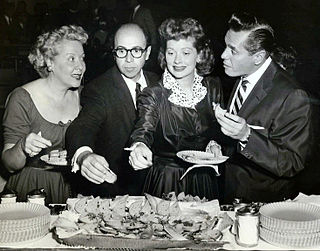
Jessurun James Oppenheimer was an American radio and television writer, producer, and director. He was the producer and head writer of the CBS sitcom I Love Lucy.

Scared Stiff is a 1953 American supernatural fiction-themed comedy horror semi-musical film, directed by George Marshall and starring Dean Martin and Jerry Lewis. One of the 17 films made by the Martin and Lewis team, it was released on April 27, 1953 by Paramount Pictures. It is the fourth screen adaptation of the 1909 play The Ghost Breaker by Paul Dickey and Charles W. Goddard, previously filmed under that title in 1914 and 1922 and as The Ghost Breakers in 1940, also directed by George Marshall and starring Bob Hope.

Frankenstein Meets the Wolf Man is a 1943 American horror film directed by Roy William Neill and starring Lon Chaney Jr. as Larry Talbot and Bela Lugosi as Frankenstein's monster. The script, written by Curt Siodmak, follows The Ghost of Frankenstein (1942) and The Wolf Man (1941), though with a number of retcons. Most significantly, Talbot only transforms into werewolf form during a full moon, which became a standard part of werewolf lore. The film involves Larry Talbot, who is resurrected when his tomb is disturbed. His search for a way to end his seeming immortality leads to his befriending Frankenstein's monster.

The Ghost Breakers is a 1940 American mystery/horror comedy film directed by George Marshall and starring Bob Hope and Paulette Goddard. It was adapted by screenwriter Walter DeLeon as the third film version of the 1909 play The Ghost Breaker by Paul Dickey and Charles W. Goddard.
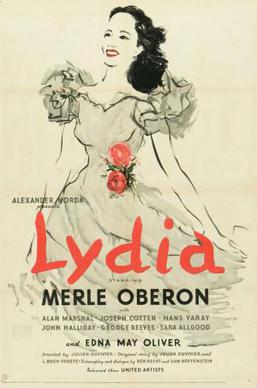
Lydia is a 1941 American romantic drama film directed by Julien Duvivier and starring Merle Oberon as Lydia MacMillan, a woman whose life is seen from her spoiled, immature youth through bitter and resentful middle years, until at last she is old and accepting. The supporting cast features Joseph Cotten, Edna May Oliver and George Reeves. The picture is a remake of Duvivier's Un carnet de bal (1937), which starred Marie Bell as the leading character.
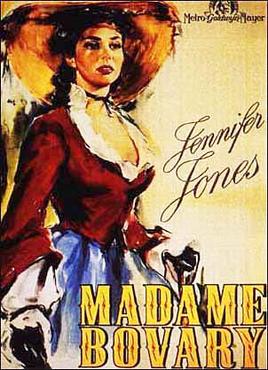
Madame Bovary is a 1949 American romantic drama, a film adaptation of the classic 1857 novel of the same name by Gustave Flaubert. It stars Jennifer Jones, James Mason, Van Heflin, Louis Jourdan, Alf Kjellin, Gene Lockhart, Frank Allenby and Gladys Cooper.
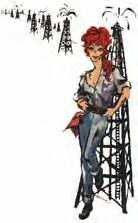
Wildcat is a musical with a book by N. Richard Nash, lyrics by Carolyn Leigh, and music by Cy Coleman.

Kitty Foyle, subtitled The Natural History of a Woman, is a 1940 drama film starring Ginger Rogers, Dennis Morgan, and James Craig, based on Christopher Morley's 1939 bestseller Kitty Foyle. Rogers won the Academy Award for Best Actress for her portrayal of the title character, and the dress she wore in the film became known as a Kitty Foyle dress.

Without Love is a 1945 romantic comedy film directed by Harold S. Bucquet and starring Spencer Tracy, Katharine Hepburn, and Lucille Ball. Based on a 1942 play by Philip Barry, the film's screenplay was written by Donald Ogden Stewart.
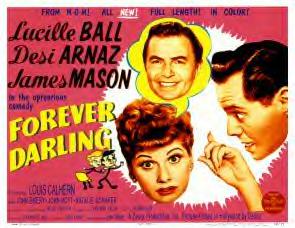
Forever, Darling is a 1956 American fantasy romantic comedy film directed by Alexander Hall, written by Helen Deutsch, and starring Lucille Ball, Desi Arnaz, and James Mason. In the film, Ball stars as a wife who tries to save her struggling marriage to a chemical engineer (Arnaz) with the help of her guardian angel (Mason). Louis Calhern and Natalie Schafer co-star in supporting roles.

Mr. Winkle Goes to War is a 1944 war comedy film starring Edward G. Robinson and Ruth Warrick, based on the 1943 novel by Theodore Pratt.
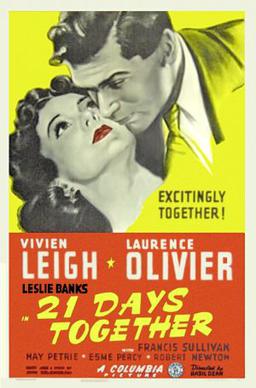
21 Days is a 1940 British drama film based on the short 1919 play The First and the Last by John Galsworthy. It was directed by Basil Dean and stars Vivien Leigh, Laurence Olivier and Leslie Banks. The film was renamed 21 Days Together for the American market.

Walk on the Wild Side is a 1962 American drama film directed by Edward Dmytryk, and starring Laurence Harvey, Capucine, Jane Fonda, Anne Baxter and Barbara Stanwyck. It was adapted from the 1956 novel A Walk on the Wild Side by American author Nelson Algren. The film was scripted by John Fante.

Divorce American Style is a 1967 American satirical comedy film directed by Bud Yorkin and starring Dick Van Dyke, Debbie Reynolds, Jason Robards, Jean Simmons, and Van Johnson. Norman Lear produced the film and wrote the screenplay, based on a story by Robert Kaufman. It focuses on a married couple who opt for divorce when counseling fails to help them resolve their various problems, and the problems presented to divorced people by alimony. The title is an homage to Divorce Italian Style (1961). Some of the film's plot, such as the maritial separation and the wife being presuaded to call off the divorce, also resembles the 1964 Andy Griffith Show episode with a similar title. "Divorce, Mountain Style."
The Boys from Syracuse is a 1940 American musical film directed by A. Edward Sutherland, based on the 1938 stage musical by Richard Rodgers and Lorenz Hart, which in turn was loosely based on the play The Comedy of Errors by William Shakespeare. The film was nominated for two Academy Awards; one for Best Visual Effects and one for Best Art Direction.
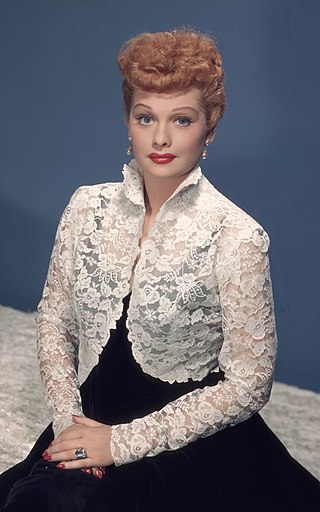
Lucille Désirée Ball was an American actress, comedian, producer, and studio executive. She was recognized by Time in 2020 as one of the most influential women of the 20th century for her work in all four of these areas. She was nominated for 13 Primetime Emmy Awards, winning five, and was the recipient of several other accolades, such as the Golden Globe Cecil B. DeMille Award and two stars on the Hollywood Walk of Fame. She earned many honors, including the Women in Film Crystal Award, an induction into the Television Hall of Fame, a Kennedy Center Honor, and the Governors Award from the Academy of Television Arts & Sciences.

Easy to Wed is a 1946 Technicolor American musical comedy film directed by Edward Buzzell, and starring Van Johnson, Esther Williams, Lucille Ball, and Keenan Wynn. The screenplay by Dorothy Kingsley is an adaptation of the screenplay of the 1936 film Libeled Lady by Maurine Dallas Watkins, Howard Emmett Rogers, and George Oppenheimer.

They Got Me Covered is a 1943 American comedy thriller film directed by David Butler and starring Bob Hope and Dorothy Lamour. Otto Preminger appears in a supporting role. It also known by the alternative titles Washington Story and The Washington Angle.

My Life with Caroline is a 1941 American comedy film directed by Lewis Milestone and starring Ronald Colman and Anna Lee, in her second Hollywood film and her first in a starring role. The supporting cast featured Charles Winninger, Reginald Gardiner and Gilbert Roland. The screenplay was written by John Van Druten and Arnold Belgard.


















